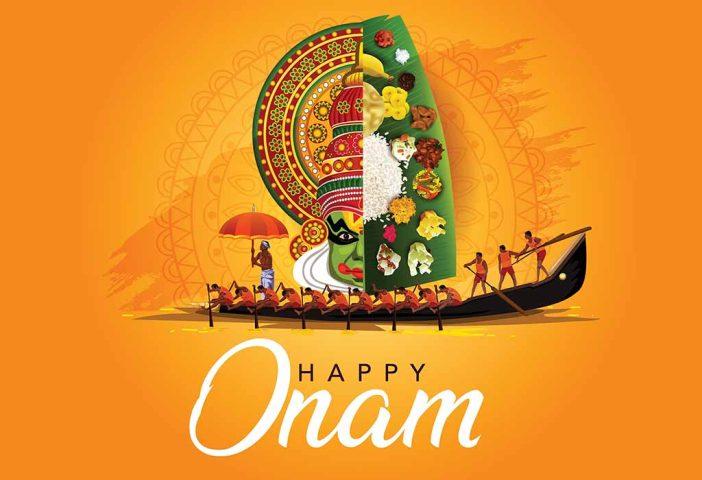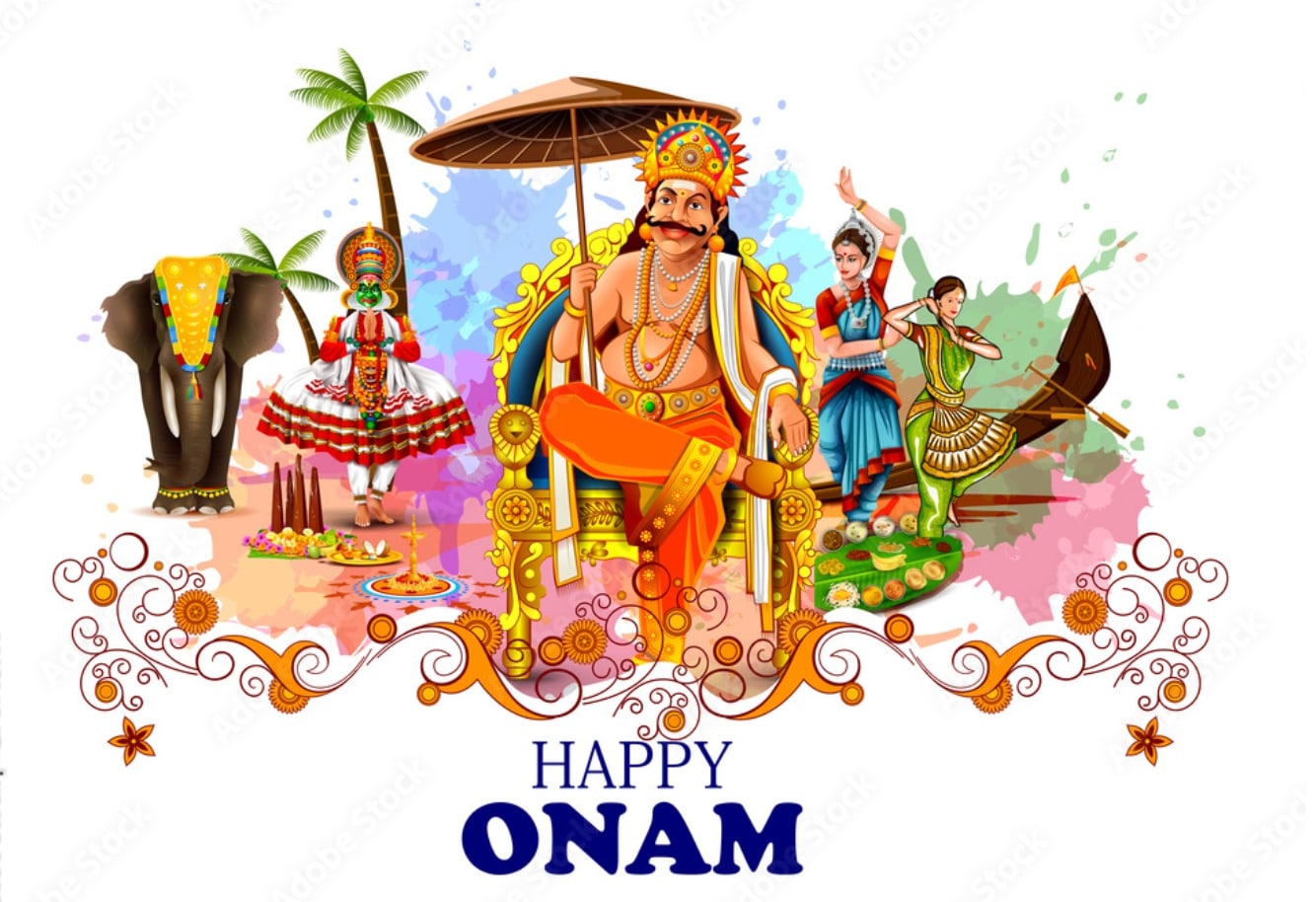Title: Onam Festival – A Celebration of Culture, Tradition, and Unity
Introduction :
Onam is a vibrant and significant festival celebrated in the southern Indian state of Kerala. This grand harvest festival is a cultural extravaganza that unites people from various backgrounds and communities. It typically falls in the Malayalam month of Chingam, which corresponds to August or September in the Gregorian calendar. Onam is marked by elaborate rituals, colorful decorations, traditional cuisine, and various forms of entertainment. It’s not just a festival but a cultural phenomenon that holds immense importance in the hearts of Keralites and anyone who appreciates India’s rich diversity and heritage.

Historical Significance:
The history of Onam dates back to ancient times and is closely associated with Kerala’s agrarian roots. Legend has it that Onam commemorates the homecoming of the mythical King Mahabali, a beloved ruler of Kerala who was pushed to the netherworld by Lord Vishnu. Despite his banishment, Mahabali was granted permission to visit his beloved subjects once a year during Onam. This celebration of King Mahabali’s return signifies the values of equality, prosperity, and benevolent rule that he represented. The story of Onam underscores the enduring connection between the people of Kerala and their monarch, making it a celebration of their shared history and cultural identity.
Rituals and Traditions :
Onam is a festival steeped in traditions and rituals that have been passed down through generations. The festivities typically span ten days, with each day having its own unique significance:
1. Atham: The festival begins with the Atham day when people start cleaning and decorating their homes. The Atham processions are a sight to behold, featuring beautifully adorned elephants.
2. Pookalam: The creation of intricate flower carpets known as “Pookalam” is a central aspect of Onam. Families design colorful patterns with flower petals in front of their homes to welcome King Mahabali.
3. Vallamkali: The snake boat race or Vallamkali is a thrilling event that takes place on the Pampa River. Teams of rowers compete vigorously in these long, snake-shaped boats, showcasing Kerala’s maritime heritage.
4. Onasadya: Onam is incomplete without the grand Onasadya, a sumptuous feast featuring a variety of vegetarian dishes served on a banana leaf. It’s a communal meal that brings families and communities together.
5. Thiruvonam: Thiruvonam, the most important day of Onam, is marked by prayers, offerings, and cultural performances. People don traditional attire, participate in dances like Kaikottikali and Pulikali, and exchange gifts.
6. Onathappan: The creation of small figurines, known as Onathappan, is another custom. These figurines are placed in homes as a symbol of King Mahabali’s presence during the festival.

Cultural Significance:
Onam is more than just a religious or harvest festival; it’s a celebration of Kerala’s rich culture and heritage. It provides a platform for artists, musicians, and dancers to showcase their talents through various art forms like Kathakali, Ottamthullal, and classical music concerts. These performances not only entertain but also educate people about Kerala’s traditional arts and storytelling.
Moreover, Onam promotes unity and inclusivity as people from all backgrounds come together to celebrate. The festival transcends caste, creed, and religion, emphasizing the harmonious coexistence of diverse communities in Kerala. This cultural unity is further reinforced by the exchange of gifts and visits among neighbors and friends.
Economic Significance :
Onam holds considerable economic importance for Kerala. The festival season witnesses a surge in tourism as people from across India and the world flock to the state to experience the grandeur of Onam. This influx of tourists contributes significantly to the local economy, with hotels, restaurants, and other businesses thriving during this period.
Additionally, the purchase of new clothes, jewelry, and gifts for loved ones drives consumer spending. The demand for fresh flowers for Pookalam and vegetables for the grand Onasadya boosts the agricultural sector.
